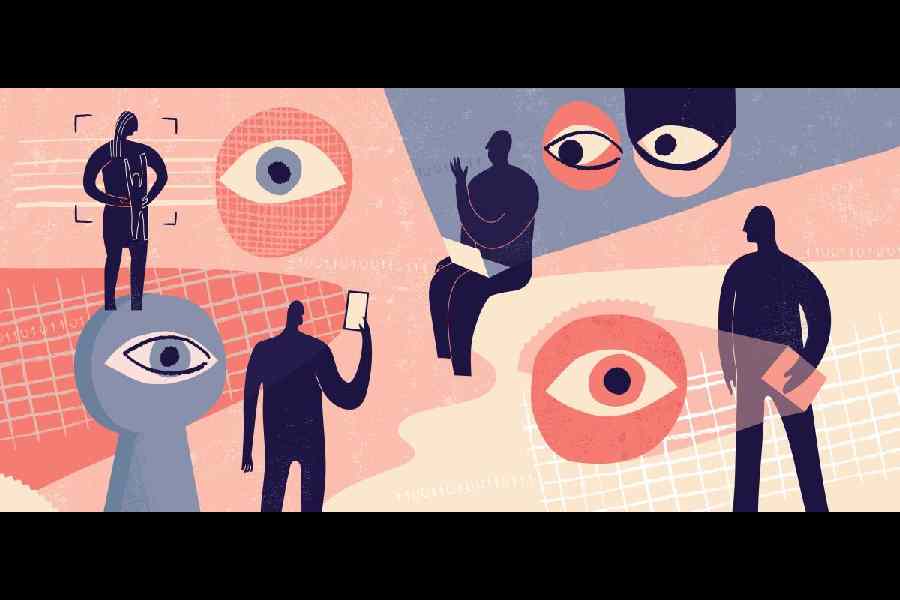The eerie feeling of being served with an advertisement about “hotels in Goa” or “travel insurance plans to the UK” soon after discussing the matter with family or friends raises the question: “Are our phones listening to us?”
Eavesdropping technology exists but our phones are not listening to us. The reality is that big tech companies are collecting so much data on us that it’s unnecessary for phones to snoop on conversations.
“Despite how it feels, there’s no solid evidence that phones are recording our private chats for ads,” Kanad Basu, who holds the title of professor of the practice at the USC Marshall School of Business in the US, told The Telegraph.
“What’s really happening is way more subtle: Your search history, websites and app usage create a detailed profile of you. If your friend searches for ‘Hawaii hotels’, you might see related ads (thanks to social connections or ‘social listing’).”
Basu added: “Just walking by travel agencies or airports can trigger travel-related content. Apps share data with each other behind the scenes.”
Eavesdropping on people using devices like phones “would be a really complex, often inaccurate way to determine what people might buy”, Jason Kelley, director of activism at the Electronic Frontier Foundation, a consumer advocacy group, told this newspaper.
“It would use a lot of phone battery power and would often violate the law. It’s also pretty unnecessary compared to what’s usually going on: Big Tech is using vast amounts of data to figure out what you might buy,” Kelley said.
“Thirty years ago an advertiser might pay for a commercial for perfume to be shown during a soap opera because it made reasonable assumptions about who was watching and what they might want to buy. Today, those ads are micro-targeted based on profiles that platforms, websites, and Big Tech companies have compiled about each of us.”
Our digital footprint goes deep. For example, cookies (a small piece of information that a website can store in a designated file on your computer; it can be used, among other things, to identify you when you log into a website) are used to record our online activities.
“Think about it like this: the vast majority of the web has trackers on it. Big Tech giants like Google, Meta and Amazon are among the top companies tracking you across the web,” Kelley said.
“Tech companies earn enormous profits by targeting ads based on your online activity — a practice called ‘online behavioural advertising’. Much of this data isn’t information that you explicitly shared, but in the same way a person watching you for weeks might learn what kinds of places you go to and make assumptions about what you might buy, companies follow you around the Internet to do the same thing.”
Kelley added: “You can find ways to block this kind of tracking, like with the Privacy Badger browser extension, but ultimately, we need privacy laws that make it easy for you to opt out of tracking and tell companies to delete this kind of data.”
A culprit in the digital eavesdropping game is shared Wi-Fi at home or office.
“It’s a data goldmine for advertisers: Everyone on your network shares an IP address, creating a ‘household profile’. Your laptop search for new shoes can trigger shoe ads on your phone,” Basu said.
“Some Internet providers and routers are selling your browsing data. Also, smart home gadgets are constantly collecting info about your habits.”
Consider this: At a restaurant, your friend is discussing with you the idea of going on a vacation to Krabi in Thailand. You may not Google the destination or look up bungalows in Krabi on Instagram but your friend may have. Ad tech companies can put two and two together to find out if you were on the same Wi-Fi network.
If your friend wants to be in Krabi next month, perhaps you too are interested. This is when advertisements for plane tickets and hotels start appearing on your feed. A diner at an adjacent table could also be searching for a vacation but ad tech companies can ascertain your relationship through social media connections.
Kelley said one should be aware of what voice assistants, like Google Assistant, Apple Siri and Amazon Alexa, can do.
“Each device’s settings and capabilities are different, but the companies are all generally trying to do the same thing: Offer conversational and somewhat personalised voice assistants that integrate with your preferences and habits, based on what the platforms know about you from profiles that they’ve created over time,” he said.
If you specifically ask an app or voice assistant about movie timing, you may assume that this information is getting added to your profile for potential advertising in the future.
“They might also ‘know’ that you regularly leave your home around 8.30 in the morning, and you go to the same location Monday through Friday, so they can somewhat creepily suggest you leave early because traffic is bad,” Kelley said.
This is not because you have told your family you have to leave for work at 8.30am. The digital assistants know it because you have given access to the calendar app or you may have asked the assistant to make a specific calendar entry for it. They also have access to your Maps app or another app that tracks your location on your phone.
A spokesperson for NordVPN, a leading virtual private network (VPN) service, told this newspaper: “To keep conversations private on iOS or Android, you should disable voice assistant features like ‘Hey Siri’ or ‘OK Google’ when not in use.
“Additionally, the microphone and location access should be turned off for unnecessary apps, and voice recordings and app data should be periodically cleared.”
Kelley too offered a few steps to tackle privacy concerns.
“Most people’s biggest privacy risks are from confusing settings, reused passwords, or plain old mistakes — like setting your phone to stay unlocked for 10 minutes, rather than a shorter default, and occasionally leaving it where others might use it,” he said.
“Use strong passwords for private accounts, and be aware of who has access to your devices if you’re not holding on to them. Try to use two-factor authentication for logging in to private devices and accounts,” Kelley added.
“Don’t reuse passwords and use a password manager to keep track of your different accounts, so that a data breach on one account doesn’t lead to a breach across multiple accounts. You should also make sure that if you use multiple devices with the same account or profile, you know who has access to each of those devices.”










